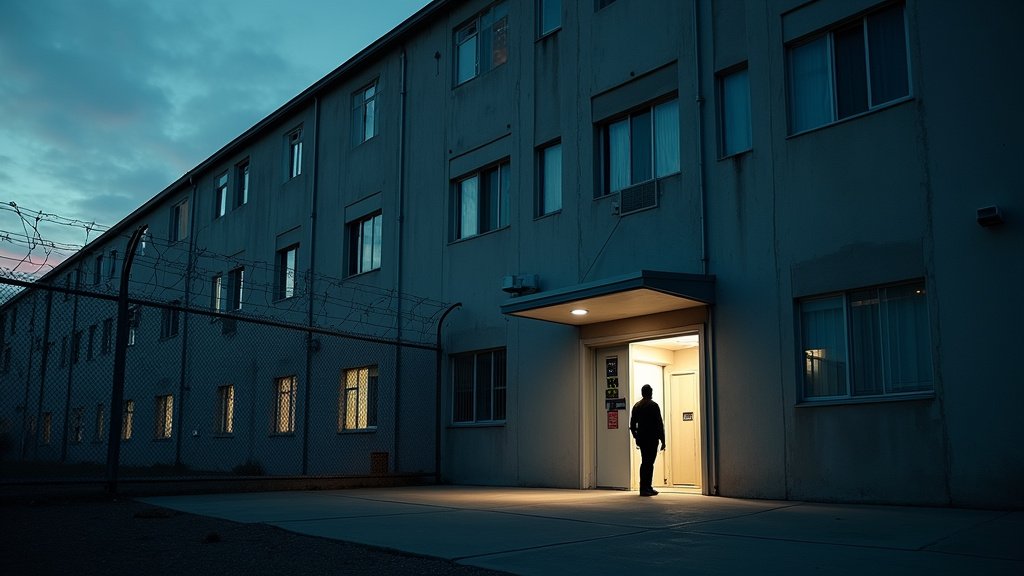An immigration agency is poised to dramatically increase the scope of detentions without bond hearings, according to a news report [9]. This expansion is fueled by a recently enacted law that allocates substantial funding towards border and immigration enforcement.
Expanding Detention Capacity
The agency anticipates having “plenty of bed space” following the implementation of the new law [9]. This legislation, which dedicates approximately USD 170 billion to border and immigration enforcement, is set to reshape the agency’s operational capabilities [9]. Over a five-year period, the agency will receive USD 76.5 billion, nearly ten times its current annual budget [9]. A significant portion of this funding, USD 45 billion, is earmarked specifically for detention purposes [9].
Legal Professionals Raise Concerns
Concerns are emerging from legal professionals regarding the immediate implications of these changes. Greg Chen, senior director of government relations at the American Immigration Lawyers Association, reported that lawyers across the nation have begun to inform him about their clients being taken into custody in immigration court [9]. The increase in detentions, without the possibility of bond hearings, is expected to impact a substantial number of individuals.
The implications of this expansion are far-reaching, potentially affecting a broad spectrum of individuals navigating the immigration system. The allocation of substantial financial resources to detention facilities underscores the agency’s commitment to increased enforcement measures, which have raised questions about due process and the rights of those detained. The new law’s emphasis on detention capacity indicates an operational shift that is likely to affect how the agency interacts with immigrants and asylum seekers. Further analysis will likely focus on the legal challenges and policy debates surrounding this expansion of detention powers.
The Context of the New Law
The new law’s passage marks a significant point in the ongoing debate surrounding immigration enforcement and border security. With a substantial increase in funding and the stated aim of expanding detention capabilities, the agency’s actions are likely to be scrutinized closely by various stakeholders. Legal experts and advocacy groups are expected to play a pivotal role in assessing the law’s impact and challenging any potential overreach.
The focus on the allocation of USD 45 billion to detention underscores the agency’s priorities. The availability of additional “bed space” suggests a readiness to detain a greater number of individuals, which is likely to affect the operations of immigration courts and the processes by which individuals are processed. The legal landscape is expected to evolve as a consequence.
Analyzing the Impact
The expansion of detention powers could also affect communities with large immigrant populations, straining local resources and potentially leading to a climate of fear. The increase in detentions might lead to extended periods of confinement for individuals awaiting decisions regarding their immigration status, which may have a significant impact on their lives and families.
The allocation of significant funds towards enforcement and detention aligns with a broader trend of increased security measures along the border. It is crucial to understand how the specific implementation of this legislation will affect the lives of people. Continuous monitoring of the practical consequences will be necessary for evaluating the outcomes of this policy. The legal community will need to remain vigilant in ensuring that due process is maintained and that any violations of human rights are swiftly addressed.
The agency’s actions are likely to draw increased attention from human rights organizations, legal advocacy groups, and civil liberties organizations. These groups are likely to monitor the agency’s compliance with legal standards and challenge any practices they deem to be unlawful or unjust. The ongoing discussions about border security and immigration policies highlight the intricate balance between national interests and human rights.
Potential Legal Challenges and Responses
Given the increased capacity for detention without bond hearings, the agency’s actions are likely to be subject to legal scrutiny. The focus on the legality of the detention process will likely be a recurring theme in discussions and any potential litigation. Lawyers and advocacy groups will likely scrutinize whether the agency follows due process and whether detention policies comply with established legal precedents.
The impact of the law and the resulting policies must be carefully examined. There must be a consideration of potential challenges that may arise from the implementation of the expanded detention policies and how the agency will respond. Transparency will be necessary to establish accountability and gain public trust.
In the coming weeks, it will be essential to observe the actions of the agency. The public will need to understand the implications of the new policies. This will require input from legal experts, advocates, and the media to ensure accurate information and enable informed public discourse. The situation is evolving, and continued analysis is essential to understand the impact on individuals and communities.






